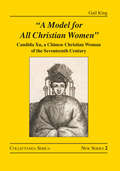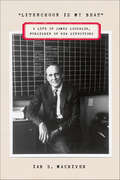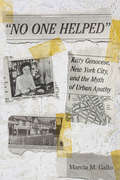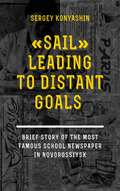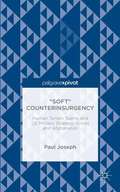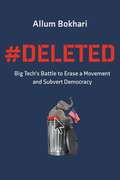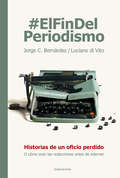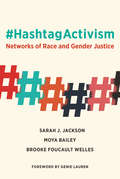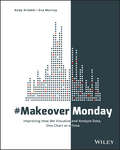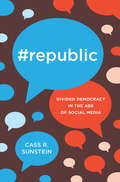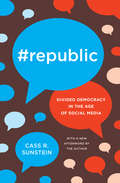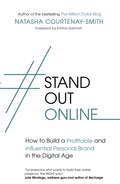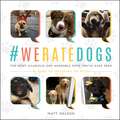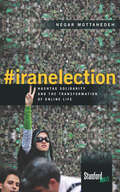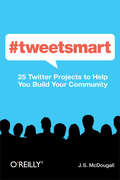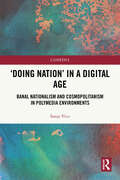- Table View
- List View
"A Model for All Christian Women": Candida Xu, a Chinese Christian Woman of the Seventeenth Century (Collectanea Serica. New Series #2)
by Gail KingThis biography of Candida Xu (1607–1680), granddaughter of the prominent Chinese Christian convert and statesman Xu Guangqi (1562–1633) and foremost Chinese Christian woman of the seventeenth century, is based on the biography of Candida Xu titled Histoire d’une dame chrétienne de la Chine (Paris, 1688) written by her confessor Philippe Couplet, S.J. (1623–1693), an obituary of his mother and other writings by her eldest son, and the Xu family history. Using these as well as other relevant European missionary and Chinese language sources, Candida Xu’s life as daughter, wife, mother, and generous contributor to the Christian Church is recounted. Events in her life are set in the context of historical and religious circumstances in China at the time. Consideration of the situation of women, particularly Christian women, draws out how Candida Xu’s faith helped her and other believing Christian women to gain greater freedom of choice and action.
"Literchoor Is My Beat": A Life of James Laughlin, Publisher of New Directions
by Ian S. MacNivenA biography—thoughtful and playful—of the man who founded New Directions and transformed American publishingJames Laughlin—poet, publisher, world-class skier—was the man behind some of the most daring, revolutionary works in verse and prose of the twentieth century. As the founder of New Directions, he published Ezra Pound's The Cantos and William Carlos Williams's Paterson; he brought Hermann Hesse and Jorge Luis Borges to an American audience. Throughout his life, this tall, charismatic intellectual, athlete, and entrepreneur preferred to stay hidden. But no longer—in "Literchoor Is My Beat": A Life of James Laughlin, Publisher of New Directions, Ian S. MacNiven has given us a sensitive and revealing portrait of this visionary and the understory of the last century of American letters. Laughlin—or J, as MacNiven calls him—emerges as an impressive and complex figure: energetic, idealistic, and hardworking, but also plagued by doubts—not about his ability to identify and nurture talent but about his own worth as a writer. Haunted by his father's struggles with bipolar disorder, J threw himself into a flurry of activity, pulling together the first New Directions anthology before he'd graduated from Harvard and purchasing and managing a ski resort in Utah. MacNiven's portrait is comprehensive and vital, spiced with Ezra Pound's eccentric letters, J's romantic foibles, and anecdotes from a seat-of-your-pants era of publishing now gone by. A story about the struggle to publish only the best, it is itself an example of literary biography at its finest.
"No One Helped": Kitty Genovese, New York City, and the Myth of Urban Apathy
by Marcia M. GalloIn "No One Helped" Marcia M. Gallo examines one of America's most infamous true-crime stories: the 1964 rape and murder of Catherine "Kitty" Genovese in a middle-class neighborhood of Queens, New York. Front-page reports in the New York Times incorrectly identified thirty-eight indifferent witnesses to the crime, fueling fears of apathy and urban decay. Genovese's life, including her lesbian relationship, also was obscured in media accounts of the crime. Fifty years later, the story of Kitty Genovese continues to circulate in popular culture. Although it is now widely known that there were far fewer actual witnesses to the crime than was reported in 1964, the moral of the story continues to be urban apathy. "No One Helped" traces the Genovese story's development and resilience while challenging the myth it created. "No One Helped" places the conscious creation and promotion of the Genovese story within a changing urban environment. Gallo reviews New York's shifting racial and economic demographics and explores post-World War II examinations of conscience regarding the horrors of Nazism. These were important factors in the uncritical acceptance of the story by most media, political leaders, and the public despite repeated protests from Genovese's Kew Gardens neighbors at their inaccurate portrayal. The crime led to advances in criminal justice and psychology, such as the development of the 911 emergency system and numerous studies of bystander behaviors. Gallo emphasizes that the response to the crime also led to increased community organizing as well as feminist campaigns against sexual violence. Even though the particulars of the sad story of her death were distorted, Kitty Genovese left an enduring legacy of positive changes to the urban environment.
"Right Makes Might": Proverbs and the American Worldview
by Wolfgang Mieder“A powerful and timely addition to the literature of rhetoric and folklore.” —ChoiceIn 1860, Abraham Lincoln employed the proverb Right makes might—opposite of the more aggressive Might makes right—in his famed Cooper Union address. While Lincoln did not originate the proverb, his use of it in this critical speech indicates that the fourteenth century phrase had taken on new ethical and democratic connotations in the nineteenth century. In this collection, famed scholar of proverbs Wolfgang Mieder explores the multifaceted use and function of proverbs through the history of the United States, from their early beginnings up through their use by such modern-day politicians as Barack Obama, Hillary Rodham Clinton, and Bernie Sanders. Building on previous publications and unpublished research, Mieder explores sociopolitical aspects of the American worldview as expressed through the use of proverbs in politics, women’s rights, and the civil rights movement—and by looking at the use of proverbial phrases, Mieder demonstrates how one traditional phrase can take on numerous expressive roles over time, and how they continue to play a key role in our contemporary moment.
"Right Makes Might": Proverbs and the American Worldview
by Wolfgang Mieder“A powerful and timely addition to the literature of rhetoric and folklore.” —ChoiceIn 1860, Abraham Lincoln employed the proverb Right makes might—opposite of the more aggressive Might makes right—in his famed Cooper Union address. While Lincoln did not originate the proverb, his use of it in this critical speech indicates that the fourteenth century phrase had taken on new ethical and democratic connotations in the nineteenth century. In this collection, famed scholar of proverbs Wolfgang Mieder explores the multifaceted use and function of proverbs through the history of the United States, from their early beginnings up through their use by such modern-day politicians as Barack Obama, Hillary Rodham Clinton, and Bernie Sanders. Building on previous publications and unpublished research, Mieder explores sociopolitical aspects of the American worldview as expressed through the use of proverbs in politics, women’s rights, and the civil rights movement—and by looking at the use of proverbial phrases, Mieder demonstrates how one traditional phrase can take on numerous expressive roles over time, and how they continue to play a key role in our contemporary moment.
"Sail" leading to distant goals: A brief history of the most famous school newspaper of Novorossiysk
by Sergey KonyashinThe documentary-memoir story "Sail leading to distant goals" is devoted to the history of the appearance, formation and development of the Novorossiysk school newspaper "Parus (Sail)", published from 1992 to 2015, as well as the enormous influence that this print edition had on the children's press in the city of Novorossiysk and far beyond. The book was written by Sergey Konyashin, a former cadet of "Parus", twice the "Young Journalist of the Year" in Novorossiysk (1999 and 2000), whose creative path into the great Russian journalism and diplomacy began from the pages of this — now largely legendary — children's print edition. Sergey Konyashin's memoirs will be of interest primarily to those who seek to learn more about the history of the Novorossiysk school press, its place in the development of the city's additional education system, as well as in the fate of some gifted Novorossiysk children.
"Soft" Counterinsurgency: Human Terrain Teams and US Military Strategy in Iraq and Afghanistan
by Paul JosephSoft Counterinsurgency reviews the promises and achievements of Human Terrain Teams, the small groups of social scientists that were eventually embedded in every combat brigade in Iraq and Afghanistan.
#DELETED: Big Tech's Battle to Erase a Movement and Subvert Democracy
by Allum BokhariThe most powerful tech companies in the world are determined to stop Donald Trump.Journalist Allum Bokhari has spent four years investigating the tech giants that dominate the Internet: Google, Facebook, YouTube, Twitter. He has discovered a dark plot to seize control of the flow of information, and utilize that power to its full extent - to censor, manipulate, and ultimately sway the outcome of democratic elections. His network of whistleblowers inside Google, Facebook and other companies explain how the tech giants now see themselves as "good censors," benevolent commissars controlling the information we receive to "protect" us from "dangerous" speech.They reveal secret methods to covertly manipulate online information without us ever being aware of it, explaining how tech companies can use big data to target undecided voters. They lift the lid on a plot four years in the making - a plot to use the power of technology to stop Donald Trump's re-election.
#ElFinDelPeriodismo: Historias de un oficio perdido o cómo eran las redacciones antes de internet
by Jorge C. Bernárdez Luciano Di VitoA través de entrevistas a doce de los periodistas de mayor trayectoria en el país, los autores reconstruyen un mundo en vías de extinción: el de las redacciones de algunos de los diarios y las revistas más importantes de la Argentina, con experiencias fundamentales de la radio y la televisión. El resultado es un retrato del periodismo de investigación que supimos tener... antes de Twitter y Google. Los autores se preguntan sobre el destino del periodismo en tiempos de Internet, Twitter y un universo nuevo de noticias de acceso y consumo veloces, pero dudosas, y en el que la opinión le gana lugar a la información. Dignos discípulos de una raza de periodistas en vías desaparición, para reconstruir cómo vivieron este oficio las últimas generaciones predigitales -hace tan solo dos, tres, cuatro décadas-, Bernárdez y Di Vito van a las fuentes, en busca del testimonio directo de varios de sus principales, más curtidos e inteligentes protagonistas. En las páginas de El fin del periodismo, recuerdan cómo empezaron, cómo era una redacción cuando aún se podía fumar en interiores, y cómo era investigar una noticia sin Google. Entrevistan a personajes enormes como Ernesto Cherquis Bialo (ex director de El Gráfico, gerente de deportes de Telefe, vocero de AFA, coautor de Yo soy el Diego de la gente, actualmente en Infobae), Jorge Fernández Díaz, Beto Casella, Any Ventura, Gerardo Rozin (actual conductor de Morfi, todos a la mesa), Teresita Ferrari (El Día, Siete Días, La Semana, Para Ti, Cosmopolitan; fue productora de La noticia rebelde y colaboradora de Juan Alberto Badía y Fernando Bravo), Carlos Ulanovsky, Enrique Vázquez (revista Humo®), Fernando Cerolini (Tiempo Argentino, TN, revista Pronto), Rubén Oliva (Edición Plus en Telefé), Cecilia Absatz (Para Ti, Noticias y La Nación; TN), y Fernando González (rector de Tea, ex Radio del Plata, Perfil y Página/30 y autor de La cocina de la noticia).
#HashtagActivism: Networks of Race and Gender Justice
by Sarah J. Jackson Moya Bailey Brooke Foucault WellesHow marginalized groups use Twitter to advance counter-narratives, preempt political spin, and build diverse networks of dissent. The power of hashtag activism became clear in 2011, when #IranElection served as an organizing tool for Iranians protesting a disputed election and offered a global audience a front-row seat to a nascent revolution. Since then, activists have used a variety of hashtags, including #JusticeForTrayvon, #BlackLivesMatter, #YesAllWomen, and #MeToo to advocate, mobilize, and communicate. In this book, Sarah Jackson, Moya Bailey, and Brooke Foucault Welles explore how and why Twitter has become an important platform for historically disenfranchised populations, including Black Americans, women, and transgender people. They show how marginalized groups, long excluded from elite media spaces, have used Twitter hashtags to advance counternarratives, preempt political spin, and build diverse networks of dissent. The authors describe how such hashtags as #MeToo, #SurvivorPrivilege, and #WhyIStayed have challenged the conventional understanding of gendered violence; examine the voices and narratives of Black feminism enabled by #FastTailedGirls, #YouOKSis, and #SayHerName; and explore the creation and use of #GirlsLikeUs, a network of transgender women. They investigate the digital signatures of the “new civil rights movement”—the online activism, storytelling, and strategy-building that set the stage for #BlackLivesMatter—and recount the spread of racial justice hashtags after the killing of Michael Brown in Ferguson, Missouri, and other high-profile incidents of killings by police. Finally, they consider hashtag created by allies, including #AllMenCan and #CrimingWhileWhite.
#MakeoverMonday: Improving How We Visualize and Analyze Data, One Chart at a Time
by Eva Murray Andy KriebelExplore different perspectives and approaches to create more effective visualizations #MakeoverMonday offers inspiration and a giant dose of perspective for those who communicate data. Originally a small project in the data visualization community, #MakeoverMonday features a weekly chart or graph and a dataset that community members reimagine in order to make it more effective. The results have been astounding; hundreds of people have contributed thousands of makeovers, perfectly illustrating the highly variable nature of data visualization. Different takes on the same data showed a wide variation of theme, focus, content, and design, with side-by-side comparisons throwing more- and less-effective techniques into sharp relief. This book is an extension of that project, featuring a variety of makeovers that showcase various approaches to data communication and a focus on the analytical, design and storytelling skills that have been developed through #MakeoverMonday. Paging through the makeovers ignites immediate inspiration for your own work, provides insight into different perspectives, and highlights the techniques that truly make an impact. Explore the many approaches to visual data communication Think beyond the data and consider audience, stakeholders, and message Design your graphs to be intuitive and more communicative Assess the impact of layout, color, font, chart type, and other design choices Creating visual representation of complex datasets is tricky. There’s the mandate to include all relevant data in a clean, readable format that best illustrates what the data is saying—but there is also the designer’s impetus to showcase a command of the complexity and create multidimensional visualizations that “look cool.” #MakeoverMonday shows you the many ways to walk the line between simple reporting and design artistry to create exactly the visualization the situation requires.
#Republic: Divided Democracy in the Age of Social Media
by Cass R. SunsteinAs the Internet grows more sophisticated, it is creating new threats to democracy. Social media companies such as Facebook can sort us ever more efficiently into groups of the like-minded, creating echo chambers that amplify our views. It's no accident that on some occasions, people of different political views cannot even understand each other. It's also no surprise that terrorist groups have been able to exploit social media to deadly effect.Welcome to the age of #Republic.In this revealing book, Cass Sunstein, the New York Times bestselling author of Nudge and The World According to Star Wars, shows how today's Internet is driving political fragmentation, polarization, and even extremism—and what can be done about it.Thoroughly rethinking the critical relationship between democracy and the Internet, Sunstein describes how the online world creates "cybercascades," exploits "confirmation bias," and assists "polarization entrepreneurs." And he explains why online fragmentation endangers the shared conversations, experiences, and understandings that are the lifeblood of democracy.In response, Sunstein proposes practical and legal changes to make the Internet friendlier to democratic deliberation. These changes would get us out of our information cocoons by increasing the frequency of unchosen, unplanned encounters and exposing us to people, places, things, and ideas that we would never have picked for our Twitter feed.#Republic need not be an ironic term. As Sunstein shows, it can be a rallying cry for the kind of democracy that citizens of diverse societies most need.
#Republic: Divided Democracy in the Age of Social Media
by Cass R. SunsteinFrom the New York Times bestselling author of Nudge and The World According to Star Wars, a revealing account of how today's Internet threatens democracy—and what can be done about itAs the Internet grows more sophisticated, it is creating new threats to democracy. Social media companies such as Facebook can sort us ever more efficiently into groups of the like-minded, creating echo chambers that amplify our views. It's no accident that on some occasions, people of different political views cannot even understand one another. It's also no surprise that terrorist groups have been able to exploit social media to deadly effect. Welcome to the age of #Republic.In this revealing book, New York Times bestselling author Cass Sunstein shows how today’s Internet is driving political fragmentation, polarization, and even extremism--and what can be done about it. He proposes practical and legal changes to make the Internet friendlier to democratic deliberation, showing that #Republic need not be an ironic term. Rather, it can be a rallying cry for the kind of democracy that citizens of diverse societies need most.
#StandOutOnline: How to Build a Profitable and Influential Personal Brand in the Digital Age
by Natasha Courtenay-Smith'For everyone who wants to build their online presence, the RIGHT way!' - Julie Montagu, wellness guru and author of RechargeThe inspirational new book from the author of The Million Dollar Blog -- discover how to build an authoritative and authentic personal brand that will change your life.If you google yourself, what do you see? Do you blend in with the masses or stand out from the crowd? Are you recognised as a thought-leader in your industry? Or are you watching others build their profile and wondering if you are being left behind?Whether you're an entrepreneur, executive, expert or an employee, how you present yourself online has a huge impact on your professional reputation. We are lucky to live in a world where everyone now has the power to publish and create micro-fame by putting out content - word by word, post by post, video by video. But how do you grab people's attention in today's noisy online world?Using a combination of technical know-how, insider tips and interviews with prominent online influencers and business owners, entrepreneur and digital strategist Natasha Courtenay-Smith shows how anyone can build a strong personal brand and become the most visible expert in their industry.#StandOutOnline is the ultimate guide to building a powerful and influential personal brand that will create boundless opportunities for you and your business. Now is the time for you to find your voice and step into the spotlight.PRAISE FOR #StandOutOnline:'All the practical, wise nuggets of advice you need to get started and dig in deep are in the pages of #StandOutOnline' - Emma Gannon, award-winning blogger and author of Ctrl Alt Delete and The Multi-Hyphen Method'Every single budding and established digital entrepreneur needs to read this enlightening book. Unmissable.' - Vicki Psarias, author of Mumboss and founder of the award-winning blog Honest Mum
#WeRateDogs: The Most Hilarious and Adorable Pups You've Ever Seen
by Matt NelsonBased on the social media sensation, #WeRateDogs features the most heroic puppers, adorable floofers and entertaining pooches the world has ever seen. It will take you on a journey through the science of dog rating and its unwavering rules. They are certainly not arbitrary and this book is definitely not just about how cute dogs are.
#iranelection: Hashtag Solidarity and the Transformation of Online Life
by Negar MottahedehThe protests following Iran's fraudulent 2009 Presidential election took the world by storm. As the Green Revolution gained protestors in the Iranian streets, #iranelection became the first long-trending international hashtag. Texts, images, videos, audio recordings, and links connected protestors on the ground and netizens online, all simultaneously transmitting and living a shared international experience. #iranelection follows the protest movement, on the ground and online, to investigate how emerging social media platforms developed international solidarity. The 2009 protests in Iran were the first revolts to be catapulted onto the global stage by social media, just as the 1979 Iranian Revolution was agitated by cassette tapes. And as the world turned to social media platforms to understand the events on the ground, social media platforms also adapted and developed to accommodate this global activism. Provocative and eye-opening, #iranelection reveals the new online ecology of social protest and offers a prehistory, of sorts, of the uses of hashtags and trending topics, selfies and avatar activism, and citizen journalism and YouTube mashups.
#tweetsmart
by J. S. Mcdougall<p>"OK. I’ve got my Twitter account…now what can I do with it?" Sound familiar? <i>#tweetsmart</i> provides the answer with 25 creative projects to help your business, cause, or organization grow. But this isn’t just another social media marketing book—it’s the anti-marketing how-to community-engagement book. You’ll find projects to help you approach your Twitter audience in ways that are strategic, measurable, and fun.</p>
#tweetsmart: 25 Twitter Projects to Help You Build Your Community
by J. S. McDougall"OK. I’ve got my Twitter account…now what can I do with it?" Sound familiar? #tweetsmart provides the answer with 25 creative projects to help your business, cause, or organization grow. But this isn’t just another social media marketing book—it’s the anti-marketing how-to community-engagement book.Twitter is not a marketing channel (and should never be used as such) but it is a community of interested, engaged, and influential people. Meeting and getting to know these people can help you build your own community. In this useful guide, you’ll find projects to help you approach your Twitter audience in ways that are strategic, measurable, and fun.Put a new wrinkle on an old contest: "be the 10th person to tweet"Create a hashtag game around your company or productsInstead of polling, ask your followers to help you make a product decisionMake MadLibs out of your marketing copy or mission statementHold a scavenger hunt, and relay clues via TwitterOrganize a weekly Twitter chat on various subjectsSolicit funny product shots, using Twitter’s photo-sharing utilitySpontaneously tweet from a store location: "Meet me now and win!"
'Doing Nation' in a Digital Age: Banal Nationalism and Cosmopolitanism in Polymedia Environments (Comedia)
by Sanja VicoThis book introduces a new theory of national identity, arguing that the nation does not only represent an abstract “imagined community” but also represents embodied cultural and discursive practices.Drawing upon a detailed case study of Serbian Londoners, this truly interdisciplinary study positions media as constitutive of national identities. The author contends that nations come into being and are sustained through everyday interpersonal communication practices that have increasingly become mediated, especially for migrants. She develops the concept of "doing nation" to argue that we should think of the nation as a dynamic process. Situated first within a particular migration context, the concept is then applied more broadly as everyday communication practices are becoming increasingly mediated worldwide.Covering a breadth of key theories and concepts in this field, including diaspora, ethnicity, nationalism, cosmopolitanism, social media affordances and polymedia, this book will appeal to scholars and students researching digital media, migration, identities, nationalism and cosmopolitanism in the social science disciplines.
'Punto de Vista' and the Argentine Intellectual Left (New Directions in Latino American Cultures)
by Sofía MercaderThis book is the first comprehensive account of the Argentine magazine Punto de Vista (1978–2008), a cultural review that gathered together prominent Argentine intellectuals throughout the last quarter of the twentieth century. Directed by cultural historian and public intellectual Beatriz Sarlo, the story of the magazine serves as a lens to study the evolution of Argentine intellectuals from the leftist mobilization of the 1960s through periods of military dictatorship and then the shifting politics of democratization in the 1980s and 1990s. The book argues that the way in which the Argentine intellectual left negotiated the political and cultural transformations of the late twentieth century can be understood as the history of two political defeats: that of the revolutionary utopias of the 1960s and 1970s and that of the social democrat project in the 1980s. By adopting an interdisciplinary approach, this book encompasses a wide range of debates taking place in Argentina, from the years prior to the dictatorship to the postdictatorship period.
'Twas the Night Before Christmas, Y'all
by Landon BryantIt&’s Christmas in the South! Viral sensation and TikTok creator Landon Bryant reimagines the classic &“The Night Before Christmas&” poem with a unique and humorous Southern twist. Merry Christmas and welcome to the South—home of sweet tea, boiled peanuts, wide front porches, and thick Southern drawls. No one knows Christmas—Southern-style—like Landon Bryant, the viral sensation and TikTok creator behind @LandonTalks. In Landon&’s reimagining of the iconic &“The Night Before Christmas&” poem, you&’ll be invited to nestle up all snug on your pallet and dream of divinity and strawberry pretzel salad. Discover what happens when quick as all get-out, a miniature sleigh and eight tiny reindeer start pawin&’ and prancin&’ each little hoof on the roof of Landon&’s house. You&’ll be fixin&’ to clutch your pearls when St. Nicholas comes down the chimney with a bound! As a bonus, Landon also shares his favorite family recipe for sweet potato casserole and a glossary for decoding Southern slang and favorite Southern-isms. Whether you live in the South or just love Southern culture, this adorably charming gift book is going to be your favorite Christmas staple for years to come. I swanny!
(Mis)Representing Weight and Obesity in the British Press: Fear, Divisiveness, Shame and Stigma
by Tara Coltman-PatelThis book is a linguistic analysis of the British obesity media narrative, analysing a large corpus of published newspaper articles to demonstrate how the language used perpetuates common misconceptions and stereotypes about weight and obesity, and then exploring the sociological effects of these widespread conceptualisations. Weight stigma and weight bias are misunderstood issues, and often underestimated in terms of their prevalence and effect by society at large. The author examines topics including the role of power and persuasion, the use of metaphor, the personal stories of members of the general public, and the gendered real-life consequences of arbitrary weight standards to provide a linguistic driven study of obesity in news media. Obesity is an issue which sits at the intersection of science and the humanities, and as such, although the research methods used are firmly situated within the field of Linguistics, this book will also be of interest to readers from fields as diverse as Sociology, Fat Studies, Media Studies, Medicine and Psychology.
(Not) Getting Paid to Do What You Love: Gender, Social Media, and Aspirational Work
by Brooke Erin DuffyAn illuminating investigation into a class of enterprising women aspiring to “make it” in the social media economy but often finding only unpaid work Profound transformations in our digital society have brought many enterprising women to social media platforms—from blogs to YouTube to Instagram—in hopes of channeling their talents into fulfilling careers. In this eye-opening book, Brooke Erin Duffy draws much-needed attention to the gap between the handful who find lucrative careers and the rest, whose “passion projects” amount to free work for corporate brands. Drawing on interviews and fieldwork, Duffy offers fascinating insights into the work and lives of fashion bloggers, beauty vloggers, and designers. She connects the activities of these women to larger shifts in unpaid and gendered labor, offering a lens through which to understand, anticipate, and critique broader transformations in the creative economy. At a moment when social media offer the rousing assurance that anyone can “make it”—and stand out among freelancers, temps, and gig workers—Duffy asks us all to consider the stakes of not getting paid to do what you love.
0 to 9 and the New York Avant-Garde: Publishing by Numbers (New Directions in Book History)
by Ross HairEdited and self-published by Bernadette Mayer and Vito Acconci from 1967 to 1969, 0 to 9 not only documented some of the most compelling examples of intermedia performance, contemporary poetry, and post-formalist art of the period, but also pioneered new ways of conceiving (and using) the magazine as medium and instrument. 0 to 9 and the New York Avant-Garde: Publishing by Numbers examines how the magazine both responded to and helped shape key developments in New York&’s often fractious avant-garde communities. The book pays particular attention to the ways in which Mayer and Acconci foregrounded the material and generic qualities of the magazine and conceived their periodical as a means of generating (as well as documenting) art and poetry. 0 to 9 and the New York Avant-Garde considers the ways in which 0 to 9 interacted with other artistic movements and theoretical concerns of the period—including cybernetics, Pop Art, structuralism, and information theory. Arguing for the enduring importance of the magazine, and its unique position in the history of New York&’s experimental art and literary scenes, this study contends that 0 to 9 was both a swan song of 1960s idealism and a precursor for the directions that avant-garde art would take in the decades that followed the magazine&’s demise.
1 2 3 Student Yearbook Guide
by Gary Lundgren Martha Akers Dr Gloria EastmanLearn how creating a school yearbook teaches valuable life skills in business and creative arts.
